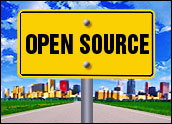
Major vendors, like HP and IBM, are embracing Linux. Does that mean that Linux is no longer, practically speaking, free? Some technology experts — even those keen on Linux — have widely differing opinions.
In an interview with the Australian IT press, Steve Vamos, the managing director for Microsoft Australia, this week stressed that Linux is not open-source software due to the costs of managing and maintaining it for businesses and individual enthusiasts.
Here in the United States, IT experts agree with that premise floated overseas but still think that Linux is a potentially promising alternative to Microsoft Windows.
“The first thing that pops into my mind is you get what you pay for, meaning it’s a real good product, but it has very little support built into it unless you pay for it,” Jim Freyburger, vice president of IT for South University, a small, private school in the Southeastern United States, which has used Linux as its primary educational software delivery system, told LinuxInsider.
Lack of Services and Support?
The lack of commercial services — and customer support — is a crucial issue for the future of Linux, experts told LinuxInsider.
“That is the hype, that it is free,” Greg Buzek, an industry analyst at IHL Consulting Group, told LinuxInsider. “But there are a number of things that the retailer needs to take on — driver compliance, support, maintenance, increased staffing — that in a Microsoft world is typically in the application and operating systems.”
Jim Lockwood, vice president of development of ACR Systems in Jacksonville, Florida, a company that serves more than 8,000 retail stores using the open-source system for point-of-sale software, said in an interview with LinuxInsider, “No. Linux is open source, but isn’t free.”
Primary Costs
Sam Greenblatt, senior vice president and chief architect of CA’s Linux Technology Group, said in an interview that there are a number of primary costs associated with Linux.
“The primary costs are software, server hardware acquisition, network, personnel, training, support and services. Personnel costs associated with Linux are equal to that of other platforms. Hardware acquisition costs have the most dramatic impact — it is much lower being Intel-based. Depending on where the customer is coming from, the software costs may be lower but generally it is equal to other platforms and the support is lower,” he said in an interview with LinuxInsider.
These costs have been somewhat obscured by Linux hype, but Greenblatt said the costs are related to the application. “For example, a content portal has less impact and costs less than a transactional system versus a collaborative system such as Web services. Dependent on the implementation, costs can vary widely and be generalized,” he said.
Linux Is ‘Free’
Another Linux expert, Steve Swaney, president of Fortress Systems, qualifies his answers when asked whether Linux is really free. “It can be,” he told LinuxInsider. “While you can buy commercial distributions of Linux, complete with support, from companies such as Red Hat or SuSE, there are open-source distributions of virtually the same software available for free download.”
For example, he said, open source versions of Red Hat Advanced Server 3.0 are available at the following URLs: taolinux.org and whiteboxlinux.org.
“These are distributions compiled from the Red Hat source code — which must be distributed under an open-source license — with the Red Hat logos and trademarks removed. I have worked with both of these distributions with no problems at all,” he said.
Swaney said he thinks that the famous study that Microsoft earlier commissioned that proved that Linux was more expensive than Windows “has been discounted.”
Not Best for Some Apps?
But he did acknowledge that Linux is not the best software for all applications. “For some applications, the Linux alternative is simply better software. Most of the world Web servers are hosted on Apache and Linux. I believe this is because Apache-Linux servers are much faster than Microsoft servers when run on identical hardware, are subject to far less security vulnerabilities than Microsoft servers, are actually easier to maintain and are more trouble-free.”
The debate over Linux is healthy, as it may clear up some confusion in the marketplace, one expert said.
“The confusion between freeware and open source is that open source is a form of freeware — however developers have access to the source code and contribute to enhancing the open-source application,” Peter Thomas, chief technology officer with Blue Lance, developer of a Linux auditing product, called LT Auditor, told LinuxInsider.
















































